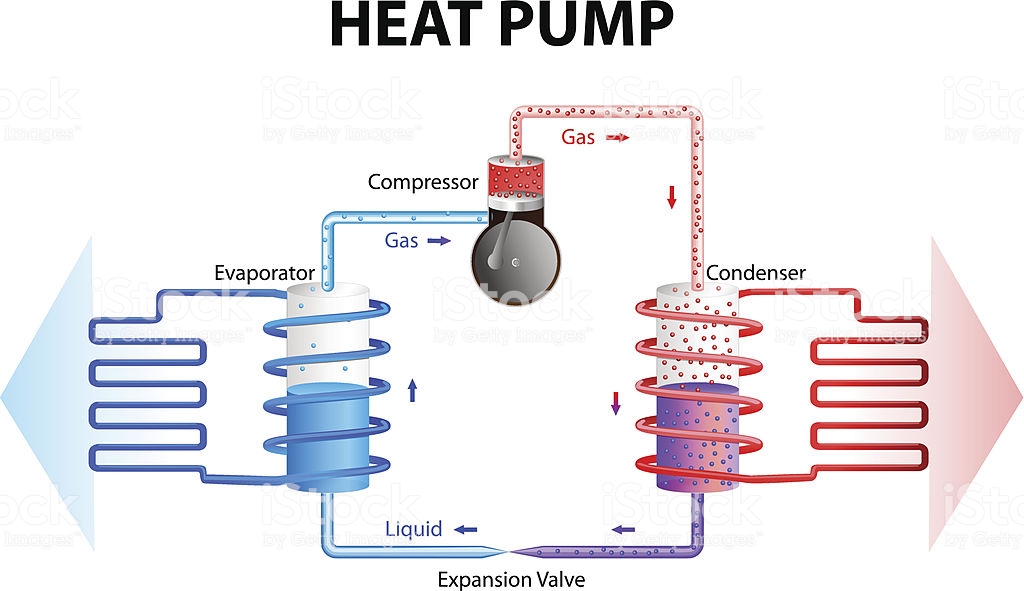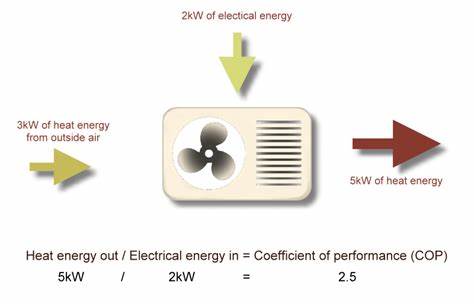Heat pumps transfer heat from one place to another, and they can be used for both heating and cooling.

Key Components
- Evaporator
- The refrigerant absorbs heat and evaporates into a gas. In heating mode, this happens outside; in cooling mode, it happens inside.
- Compressor
- The gas refrigerant is compressed, increasing its temperature and pressure. This part of the cycle requires energy input, typically in the form of electricity.
- Condenser
- The hot, high-pressure gas releases heat as it condenses back into a liquid. In heating mode, this happens indoors; in cooling mode, it happens outside.
- Expansion Valve
- The refrigerant passes through an expansion valve, lowering its pressure and temperature, ready to absorb heat again.
Coefficient of Performance (COP)
The coefficient of performance (COP) is a measure of the efficiency of a heat pump. It represents the ratio of useful heating or cooling provided to the energy input required. Here's a simple way to understand it:
- Heating Mode: In heating mode, the COP indicates how many units of heat energy the heat pump produces for each unit of electrical energy consumed. For example, a COP of 4 means the heat pump provides 4 units of heat for every 1 unit of electricity.
- Cooling Mode: In cooling mode, the COP is also referred to as the Energy Efficiency Ratio (EER). It measures the efficiency of the heat pump in removing heat from a space.

Factors Affecting COP
- Temperature Difference: The COP decreases as the temperature difference between the heat source and the destination increases. Heat pumps work more efficiently when the outside temperature is moderate.
- System Design: The quality of components and overall system design can affect the COP. High-quality, well-designed heat pumps generally have higher COPs.
- Maintenance: Regular maintenance ensures the heat pump operates at peak efficiency, positively impacting its COP.
Why COP Matters
- Energy Efficiency: A higher COP means the heat pump is more efficient, providing more heating or cooling for the same amount of energy input.
- Cost Savings: Efficient heat pumps reduce energy consumption, leading to lower utility bills and long-term cost savings.
- Environmental Impact: Higher efficiency means less energy consumption and lower greenhouse gas emissions, making heat pumps an environmentally friendly choice.
Understanding the COP helps in selecting the most efficient heat pump for your needs, ensuring cost savings and environmental benefits over the unit's lifespan.